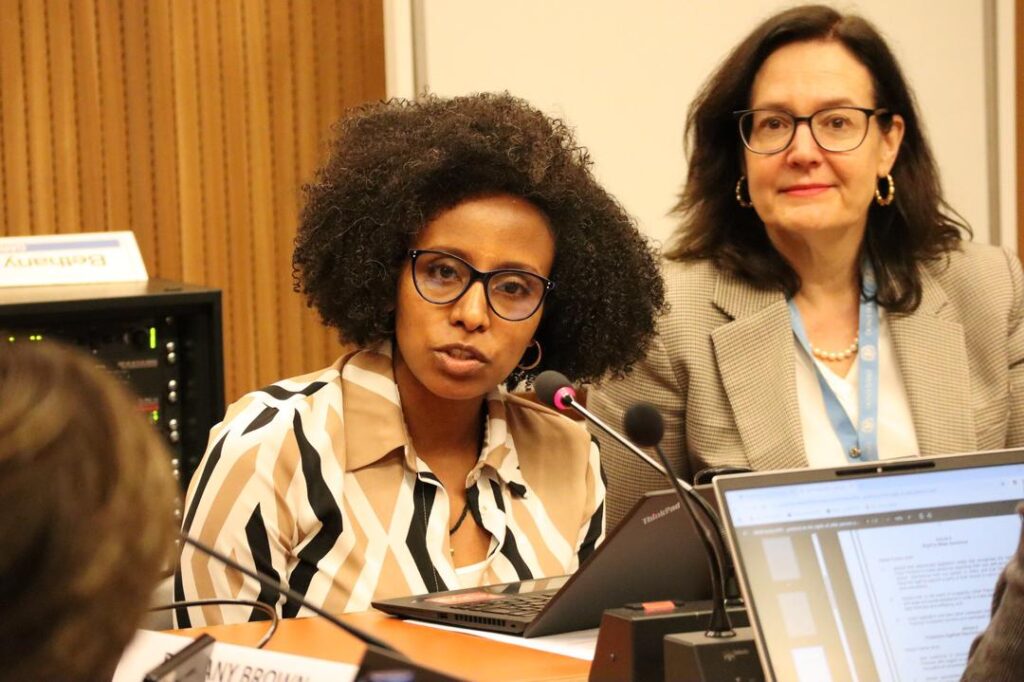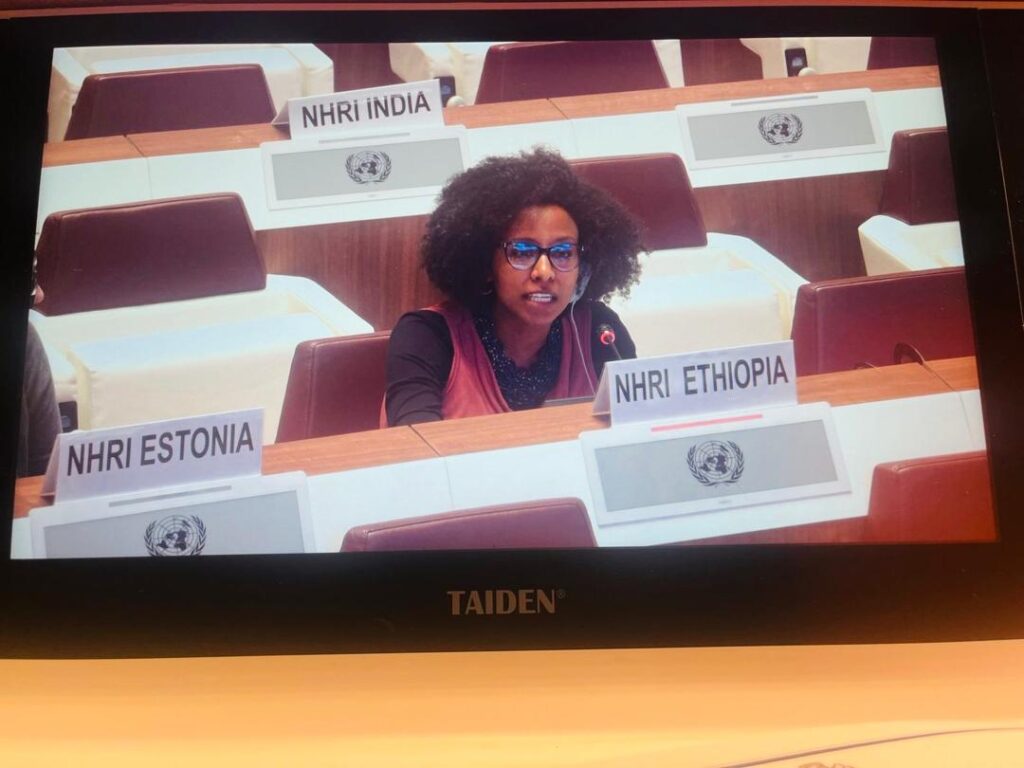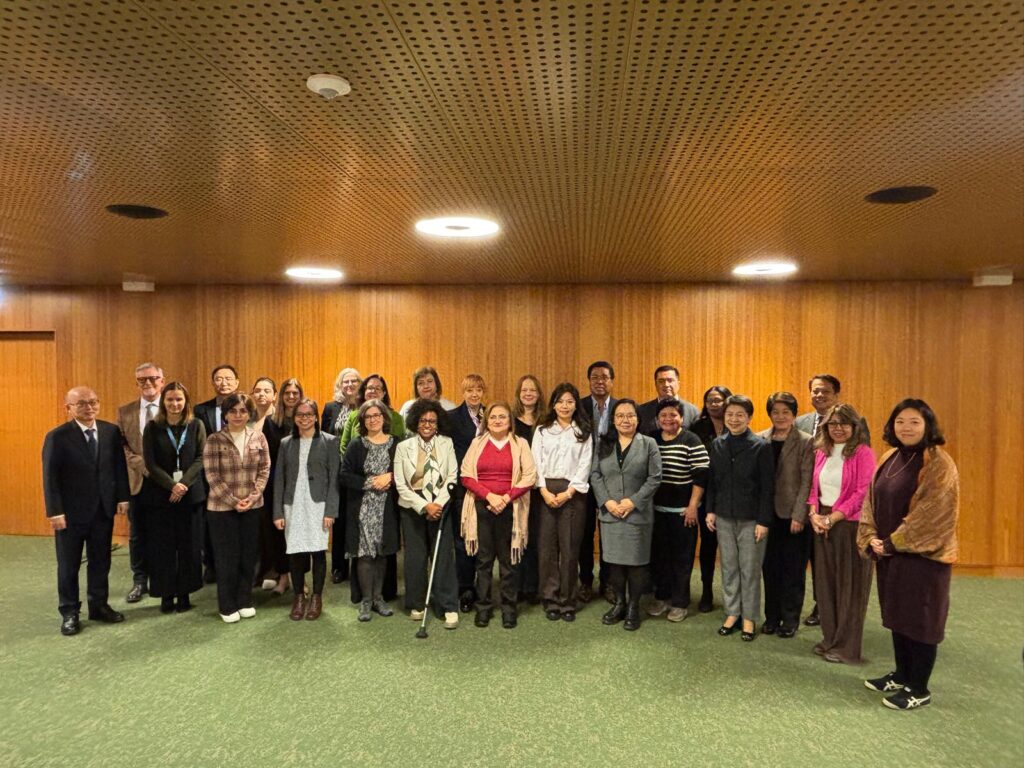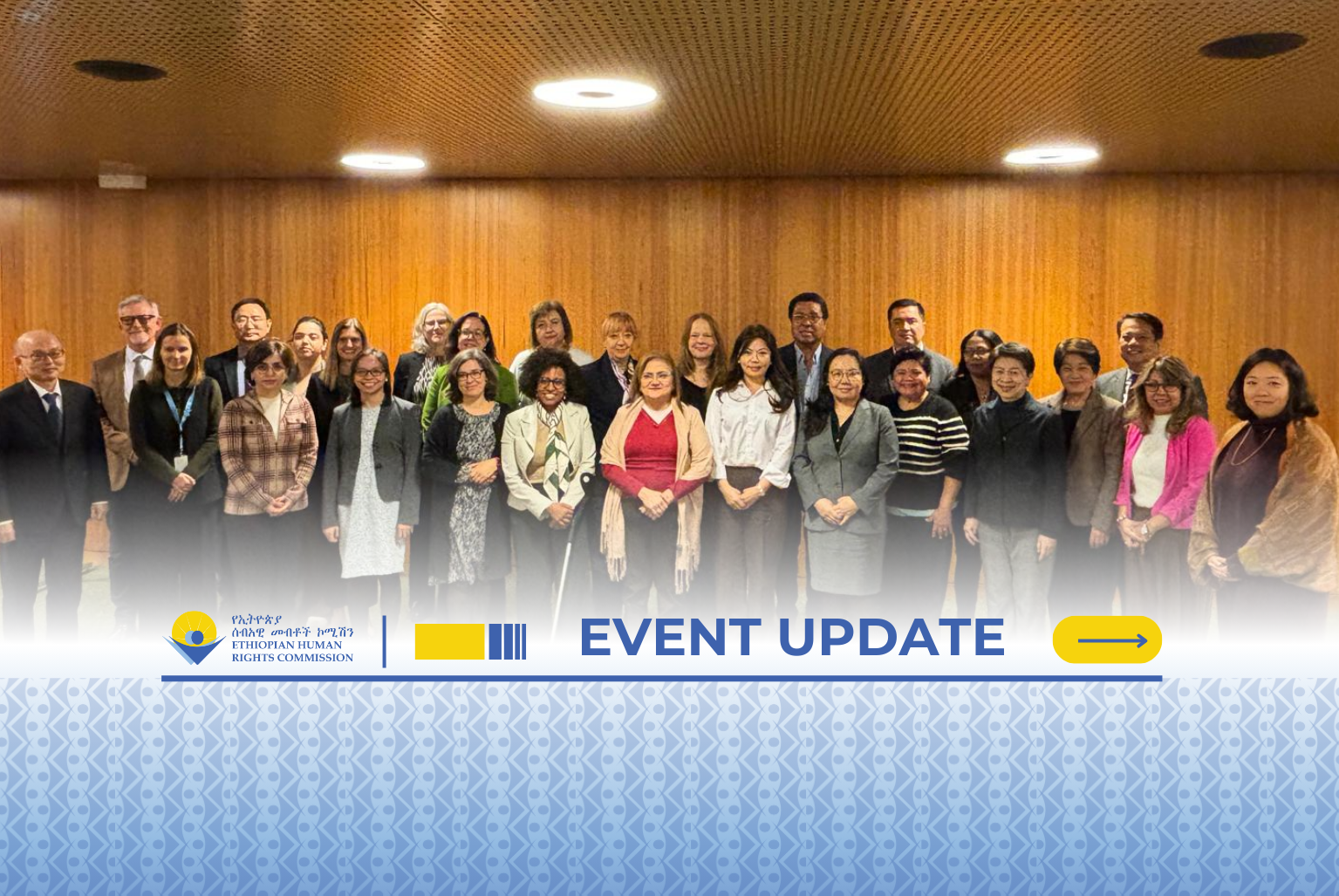The Ethiopian Human Rights Commission (EHRC) took part in The Global Alliance of National Human Rights Institutions (GANHRI) series of high-level discussions, in parallel with the 2025 GANHRI Annual Conference and the 58th Session of the UN Human Rights Council.
The GANHRI Annual Meeting is a regular event that brings together National Human Rights Institutions (NHRIs) from across the globe. Held in Geneva, it typically coincides with a session of the UN Human Rights Council. This meeting is organized by GANHRI in partnership with the Office of the United Nations High Commissioner for Human Rights (OHCHR). The Annual Meeting includes the GANHRI Bureau meeting, the General Assembly, the Knowledge Exchanges and the Annual Conference. The knowledge exchange focused on good practices promoting the rights of persons with disabilities and the human rights of women and girls. Additionally, other meetings and events take place during the same week, such as the regional networks’ meetings and events.

EHRC’s Chief Commissioner Berhanu Adello and Deputy Chief Commissioner Rakeb Messele attended the first meeting of EHRC as a permanent member of the NANHRI Steering Committee. This milestone signifies EHRC’s strengthened role in advancing human rights within Africa and beyond. Additionally, EHRC’s Commissioner for Women, Children, Older Persons and Disability Rights, Rigbe Gebrehawaria, participated in the GANHRI Knowledge Exchange on Human Rights of Women and Girls. She shared EHRC’s experience in documenting violence against women and girls in conflict and non-conflict settings. She underscored the need for a victim-centered transitional justice process and reinforced the critical role of EHRC in ensuring accountability for human rights violations.

Additionally, Commissioner Rigbe participated in the GANHRI Working Group on Ageing and the Human Rights of Older Persons (HROP) biannual meeting where she emphasized the importance of engaging regional National Human Rights Institutions (NHRI) networks, such as NANHRI, in advocating for a binding convention on the rights of older persons. She further reinforced the meaningful participation of NHRIs and regional human rights mechanisms during the side event on Strengthening Cooperation with States and Civil Society in Advancing a Convention on the Rights of Older Persons.

In a significant milestone, EHRC contributed to the first informal negotiations of the zero-draft Human Rights Council Resolution on the human rights of older persons. This resolution aims to establish an intergovernmental working group mandated to develop a legally binding international instrument to protect and promote the rights of older persons. Ethiopia, for the first time, publicly expressed its support for drafting such a convention, aligning with EHRC’s long-standing advocacy efforts.
The GANHRI Outcome Statement for 2025 highlights the importance of gender equality as a cornerstone of peace and justice. EHRC reaffirmed its dedication to embedding gender-responsive policies and addressing intersecting forms of discrimination.
